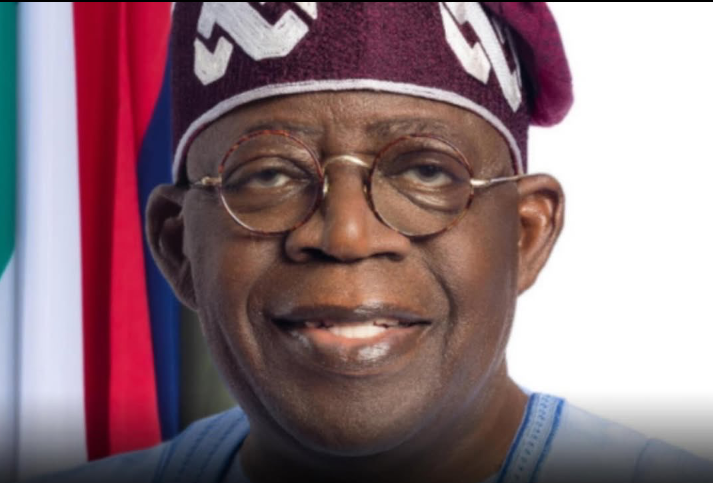
“I Cried in Silence”: Funke Akindele Reveals Emotional Pain Over Being Mocked for Not Having a Husband

In a society where success is often weighed against traditional milestones like marriage, Nollywood icon Funke Akindele has opened up about the intense emotional toll public judgment took on her during one of the most critical periods of her life. The award-winning actress and producer, revered for blockbuster films like Battle on Buka Street and Omo Ghetto: The Saga, shared a deeply personal revelation that has sparked widespread conversation and empathy across social media.
In an exclusive interview with media personality Chude Jideonwo, Funke bared her soul, recalling a heartbreaking moment that pushed her to seek therapy for the first time in her life. Her political journey into the 2023 general elections, where she contested for the position of Deputy Governor of Lagos State under the Peoples Democratic Party (PDP), exposed her not just to the glare of political scrutiny but also to an unexpected wave of personal attacks. Among the harshest were comments aimed not at her qualifications or ambitions, but at her marital status.
“There was one video I watched where women were mocking me for not having a husband, and I want to do politics,” Funke said, her voice heavy with emotion. “I broke down and cried. I told myself I needed to speak to a therapist, and I felt better.” This candid admission peeled back the polished image of strength the public often sees in celebrities and revealed the painful vulnerability that comes with being a woman in the public eye.
Funke Akindele’s foray into politics was a bold step—an attempt to move beyond entertainment and contribute meaningfully to governance. However, her ambition was met with a societal backlash that had little to do with her capabilities. Instead, it focused on her private life—her failed marriage and her status as a single mother. For many, the comments might have seemed like harmless gossip, but for Funke, they cut deep enough to break her down.
“Right from the scratch, I’ve always known that therapy was important, but never submitted to it because I didn’t want them to carry my gist,” she confessed. “I kept acting strong while they were throwing everything at me.” Her words struck a chord with many who have endured the pressure to appear strong while battling emotional turmoil in silence. Despite her fame, wealth, and accolades, Funke revealed that the sting of judgment is universal—and often most painful when it comes from fellow women.
Funke’s revelation is more than just a celebrity moment; it’s a cultural wake-up call. Her story highlights the heavy burden of societal expectations placed on women, especially those who dare to dream beyond the traditional path. The unrelenting focus on her marital status during her political campaign was not just unfair—it was a stark reminder of how success in many African societies is still tethered to a woman’s relationship status.
Still, her decision to seek therapy and speak openly about it marks a turning point—not just for herself, but for countless others who struggle silently. In a country where mental health remains stigmatized and therapy is often viewed as taboo, especially among the elite, Funke’s honesty serves as a beacon of hope. She encouraged others going through emotional struggles not to suffer in silence. “I want to advise you out there that it is very important to speak up,” she urged.
This powerful message has resonated with fans and followers across social media platforms. Many praised her vulnerability and courage, describing her as not only a trailblazer in the film industry but now also a voice for emotional wellness and self-care. Her words have sparked fresh discussions around the importance of mental health awareness in Nigeria, particularly among women who are constantly expected to suppress their feelings and ‘stay strong’ no matter the storm.
It is also significant that her moment of emotional vulnerability came as a result of criticism from women—a painful irony that underscores how internalized societal norms can turn women against each other. By shedding light on this, Funke has added another layer to the ongoing conversation about women supporting women. In a world quick to judge, her story is a reminder that compassion, especially among women, can be far more powerful than condemnation.
Beyond the tears and therapy, Funke Akindele is still the powerhouse many have come to admire. Her career continues to soar, with films breaking box office records and her influence in pop culture remaining unmatched. Yet, this revelation adds depth to her public persona, painting the portrait of a woman who, despite her strength and success, is not immune to hurt.
She is not just an actress or a politician—she is a mother, a fighter, a woman who has faced pain head-on and emerged stronger. Her story is a testament to the fact that even those who seem to have it all can still be hurting. And in sharing her truth, she has given others permission to do the same.
In an era where social media often thrives on tearing people down, Funke’s decision to rise above the noise and prioritize her mental health is both radical and empowering. Her courage to cry, to seek help, and to speak her truth publicly, is a reminder that strength is not always in stoicism—it is often in the bravery to feel, to break, and to heal.
As her story continues to inspire, one thing remains clear: Funke Akindele’s legacy will not only be defined by the characters she brings to life on screen, but also by the real-life strength she demonstrates off it. And perhaps, in showing her tears, she has taught us all the true meaning of resilience.


